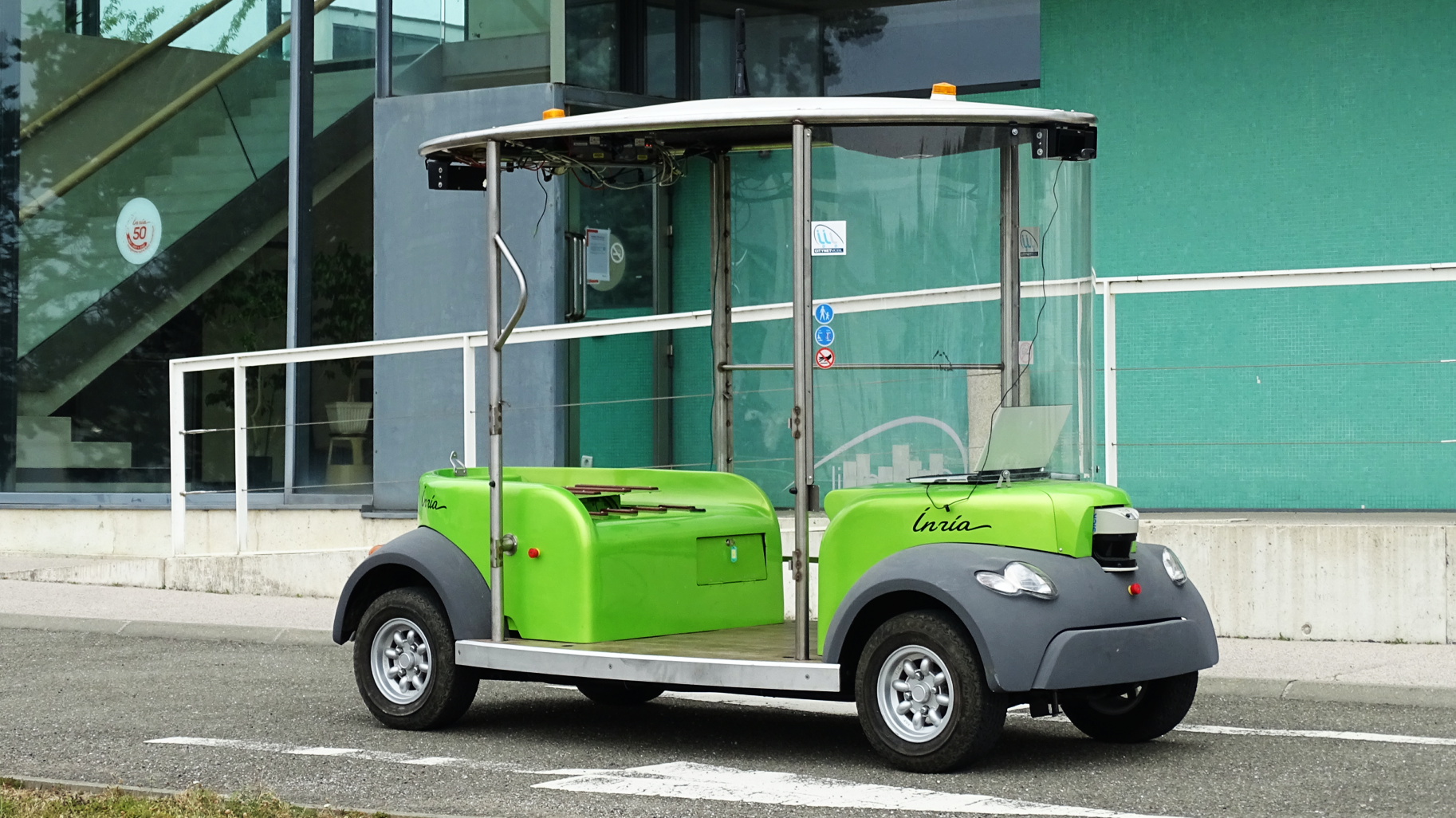Avacar: remote driving for fleets of driverless vehicles
Date:
Changed on 12/07/2021

Driverless vehicles have been gaining momentum for years now. However, they are still far from being reliable, particularly in complex environments. With a growing awareness of a need for back-up solutions, the answer Avacar have come up with is remote driving, which will enable fleet managers, based at remote control centres, to take control during situations that automation is unable to cope with.
It was while studying for a PhD on driverless vehicles with the RITS project team at Inria Paris that Pierre de Beaucorps identified two aspects to the approach currently taken by the main players in the driverless vehicle sector which would be the foundations for the start-up.
Firstly, from a technical perspective, he felt it was essential to have a back-up that would put a human back behind the wheel in the event of an error with the system. Secondly, Pierre sought to question the car-solo model in the context of the energy transition, focusing on fleets of vehicles.
Indeed, a desire to optimise occupancy and to cut down on the number of vehicles on the road is one of the start-up's main concerns.
Alongside his friend Pierre Bourré, a research engineer with the RITS project team, he decided to explore solutions to these problems by joining the Inria Startup Studio programme with the Avacar project in April 2020.
Verbatim
Inria Startup Studio offers tailored support. This is rare for deep tech projects, which have long development times. We felt surrounded by knowledgeable people keen to understand our needs.
Auteur
Poste
co-founder of Avacar
The two associations are now deploying their first complete demonstrators on vehicles in real-life situations. Feedback from users on the technology and testing will allow them to validate their solutions in a range of different environments and on a variety of different vehicles.
Looking long-term, Avacar has its sights set on new applications developed exclusively through remote driving. For fleets of car-sharing vehicles, through remote driving, certain vehicles would be able to travel without a driver, allowing them to reach isolated users, or to anticipate an uneven distribution of vehicles.
Verbatim
Our ambition is to contribute towards innovations for other transport models, particularly for less densely-populated areas.
Auteur
Poste
co-founder of Avacar